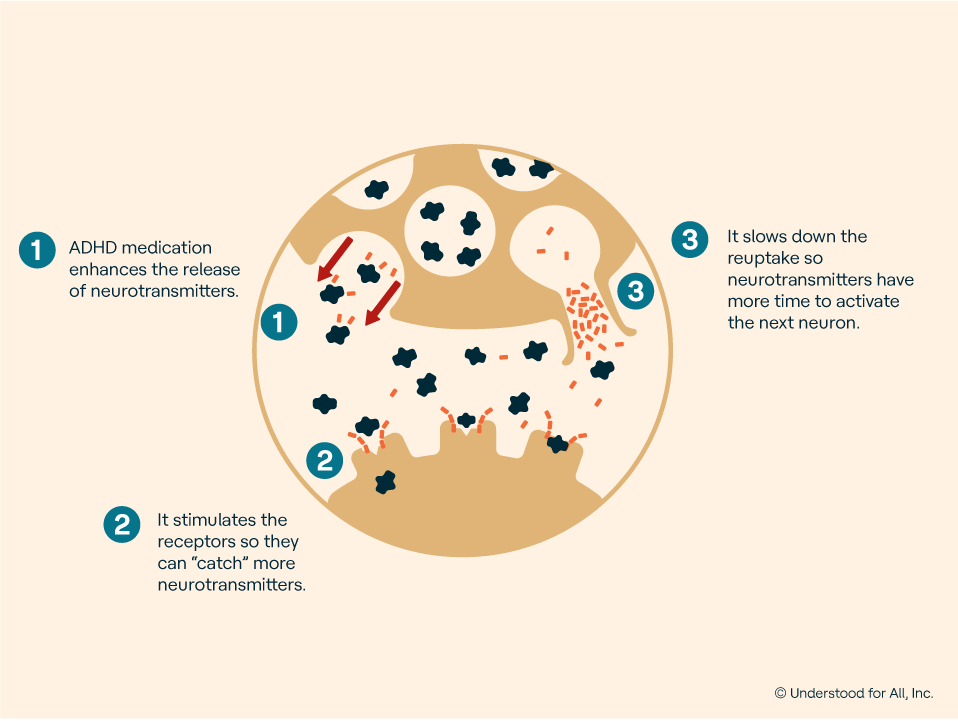Checking Out Effective ADHD Therapy Options for All Ages
The intricacies of Attention Shortage Attention Deficit Disorder Problem (ADHD) present special obstacles throughout various age groups, requiring an extensive expedition of reliable therapy alternatives. A mix of behavioral therapies, medicinal interventions, and way of life modifications has shown pledge in attending to the varied needs of people with ADHD.
Understanding ADHD and Its Influence
Attention-Deficit/Hyperactivity Condition (ADHD) is a neurodevelopmental problem defined by relentless patterns of inattention, hyperactivity, and impulsivity that can significantly affect different aspects of an individual's life. It commonly materializes in childhood years, although symptoms can persist right into adulthood. The core signs and symptoms of ADHD can disrupt educational performance, prevent social interactions, and complicate job-related endeavors.
Individuals with ADHD often have problem with maintaining concentrate on tasks, organizing tasks, and following with on guidelines, which can bring about academic underachievement (Depression Treatment). In social contexts, impulsivity might lead to troubles in creating and sustaining partnerships, as individuals might interrupt conversations or make hasty decisions without considering effects
Furthermore, ADHD can co-occur with other psychological health and wellness conditions, such as stress and anxiety and clinical depression, further making complex medical diagnosis and treatment. The variability in sign presentation suggests that ADHD can influence people in different ways, requiring an individualized technique to monitoring. Understanding ADHD's complex effect is crucial for establishing effective approaches that support people in navigating day-to-day difficulties and achieving their potential. Comprehensive recognition of ADHD's nature and effects lays the groundwork for exploring appropriate treatment options customized to each person's demands.
Behavioral Therapies for ADHD
Various behavior modifications have actually been established to effectively attend to the obstacles connected with ADHD, focusing on modifying specific habits and fostering essential abilities. Among one of the most recognized strategies are cognitive-behavioral therapy (CBT), parent training, and social skills training.
CBT assists people determine and alter adverse thought patterns and behaviors, advertising a much more positive overview and boosted self-regulation. This therapy usually includes sensible approaches for taking care of impulsivity and improving company. Parent training programs encourage caregivers by furnishing them with methods to reinforce favorable habits and established constant limits, which can be especially helpful for children with ADHD.
Social abilities training is an additional crucial element, teaching people with ADHD how to engage efficiently with peers - Depression Treatment. This approach frequently entails role-playing and feedback to boost interaction, teamwork, and dispute resolution skills
Integrating these behavioral therapies right into a comprehensive therapy strategy can considerably enhance working and quality of life for people with ADHD. Ultimately, the effectiveness of these therapies relies on customized methods that think about the unique needs of everyone, thus fostering resilience and versatility in day-to-day live.
Medication Options Available
For numerous people with ADHD, medicine can play a substantial duty in taking care of signs and symptoms and boosting general functioning. The two main groups of medications suggested for ADHD are stimulants and non-stimulants.
Stimulants, such as methylphenidate and amphetamine-based drugs, are one of the most frequently made use of treatments. These medicines work by raising the levels of neurotransmitters, specifically dopamine and norepinephrine, in the brain, which assists enhance focus and decrease impulsivity and hyperactivity. They commonly produce rapid outcomes, making them a favored alternative for several people.

It is essential for health care companies to conduct a thorough assessment to establish one of the most suitable medicine based on private needs, medical background, and prospective adverse effects. Normal follow-up and surveillance are also crucial to guarantee the effectiveness of the chosen therapy and to make any essential modifications.
Way Of Living Adjustments to Take Into Consideration
Handling ADHD properly expands past medicine, as way of life changes can considerably improve total well-being and symptom control. Integrating organized regimens is essential; regular schedules assist individuals with ADHD manage their time successfully and decrease feelings of bewilder.
Routine exercise is one more crucial element. Workout not just helps to boost concentration yet also boosts mood and lowers stress and anxiety levels. Tasks such as yoga or team sporting activities can be specifically advantageous, advertising both physical Continued conditioning and social communication.
Nutrition additionally plays a crucial function. Depression Treatment. A balanced diet plan rich in omega-3 fats, entire grains, and lean proteins can contribute to enhanced emphasis and cognitive function. Limiting sugar and refined foods is a good idea, as these can aggravate hyperactivity and impulsivity
Rest health is crucial for managing ADHD signs. Developing a regular sleep schedule and producing a restful setting can boost rest top quality, causing much better attention and emotional law.
Alternative and Alternative Methods
Alternative and alternative strategies to ADHD therapy provide a diverse array of alternatives that complement standard approaches. These approaches typically concentrate on way of living adjustments, nutritional interventions, and healing methods that aim to enhance total wellness while addressing ADHD symptoms.

Mindfulness and behavior therapies are additionally obtaining grip as all natural interventions. Practices such as yoga exercise, reflection, and cognitive-behavioral therapy can grow self-regulation and improve interest. These techniques sustain psychological resilience, which is particularly advantageous for individuals with ADHD.
Organic supplements, such as ginkgo biloba and ginseng, are occasionally explored; nevertheless, it is essential to seek advice from health care specialists prior to including these into treatment strategies. While choice and alternative methods can provide important support, they must preferably be utilized combined with evidence-based therapies to accomplish ideal outcomes for handling ADHD throughout all ages.
Conclusion
In summary, effective ADHD therapy necessitates a thorough strategy that consists of behavior therapies, drug, way of living modifications, and holistic methods. Customized interventions can considerably improve individuals' functioning and quality of life, dr rastogi psychiatrist while suitable medicine makes sure optimal symptom monitoring. Adopting structured routines, engaging in routine physical activity, and exercising mindfulness can boost psychological regulation and attention. This complex technique underscores the value of individualized care in attending to the diverse needs of people with ADHD across any age groups.